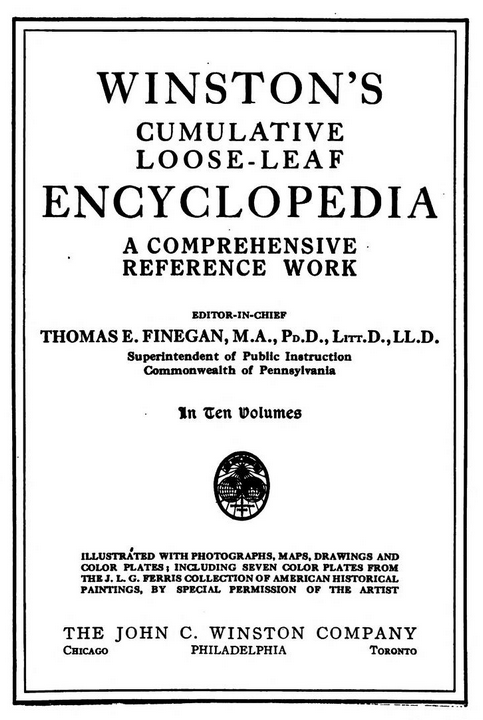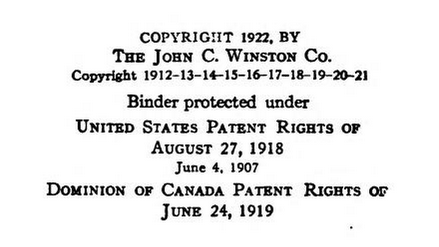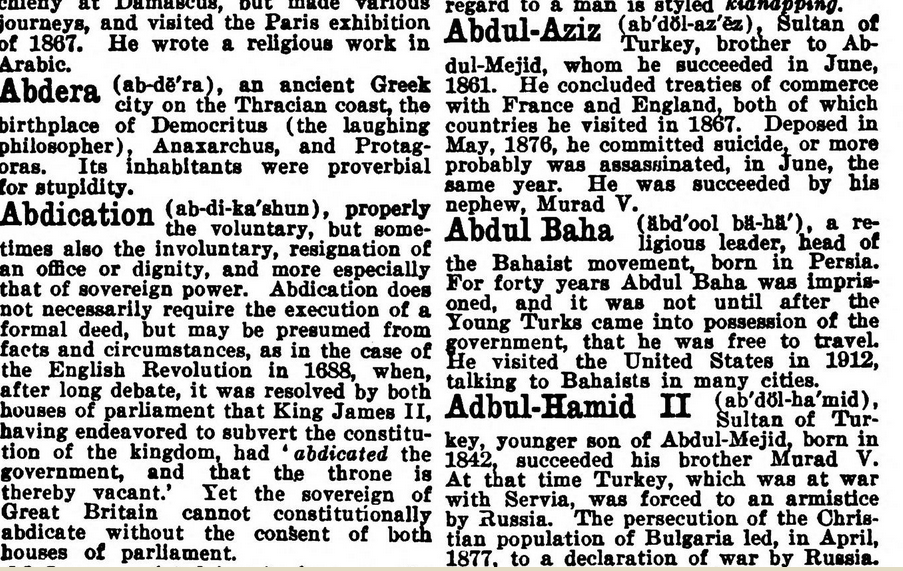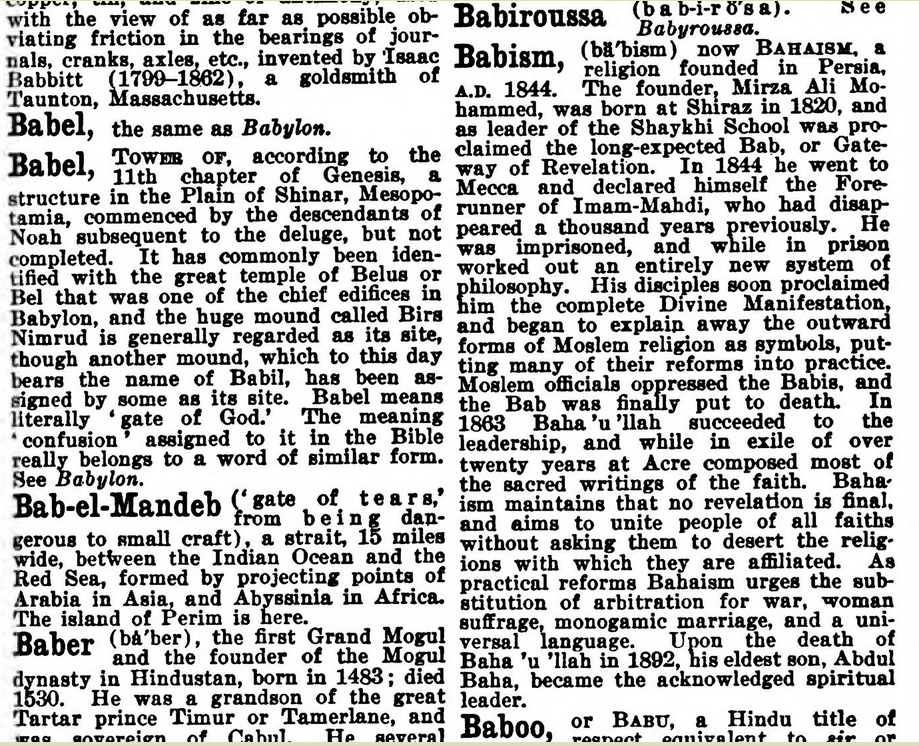
|
|
Abstract: Two short encyclopedia entries. Notes: The excerpt below is from the 1922 book, which is online in a variety of formats at archive.org. Identical entries also appear in a 1920 book, Universal Encyclopedia, online at archive.org. |
Abdul Baha; Babism
edited by Thomas E. Fineganpublished in Winston's Cumulative Loose-Leaf Encyclopedia: A Comprehensive Reference Work
Chicago: John C. Winston Co., 1922
date of original: 1920
1. Text
Abdul BahaA religious leader, head of the Bahaist movement, born in Persia. For forty years Abdul Baha was imprisoned, and it was not until after the Young Turks came into possession of the government, that he was free to travel. He visited the United States in 1912, talking to Bahaists in many cities.
Babism Babism, now Bahaism, a religion founded in Persia. A.D. 1844. The founder, Mirza Ali Mohammed, was born at Shiraz in 1820, and as leader of the Shaykhi School was proclaimed the long-expected Bab, or Gate-way of Revelation. In 1844 he went to Mecca and declared himself the Fore-runner of Imam-Mahdi, who had disappeared a thousand years previously. He was imprisoned, and while in prison worked out an entirely new system of philosophy. His disciples soon proclaimed him the complete Divine Manifestation, and began to explain away the outward forms of Moslem religion as symbols, putting many of their reforms into practice. Moslem officials oppressed the Babis, and the Bab was finally put to death. In 1863 Bahá'u'lláh succeeded to the leadership, and while in exile of over twenty years at Acre composed most of the sacred writings of the faith. Bahaism maintains that no revelation is final, and aims to unite people of all faiths without asking them to desert the religions with which they are affiliated. As practical reforms Bahaism urges the substitution of arbitration for war, woman suffrage, monogamic marriage, and a universal language. Upon the death of Bahá'u'lláh in 1892, his eldest son, Abdul Baha, became the acknowledged spiritual leader.
2. Image scans
|
|



